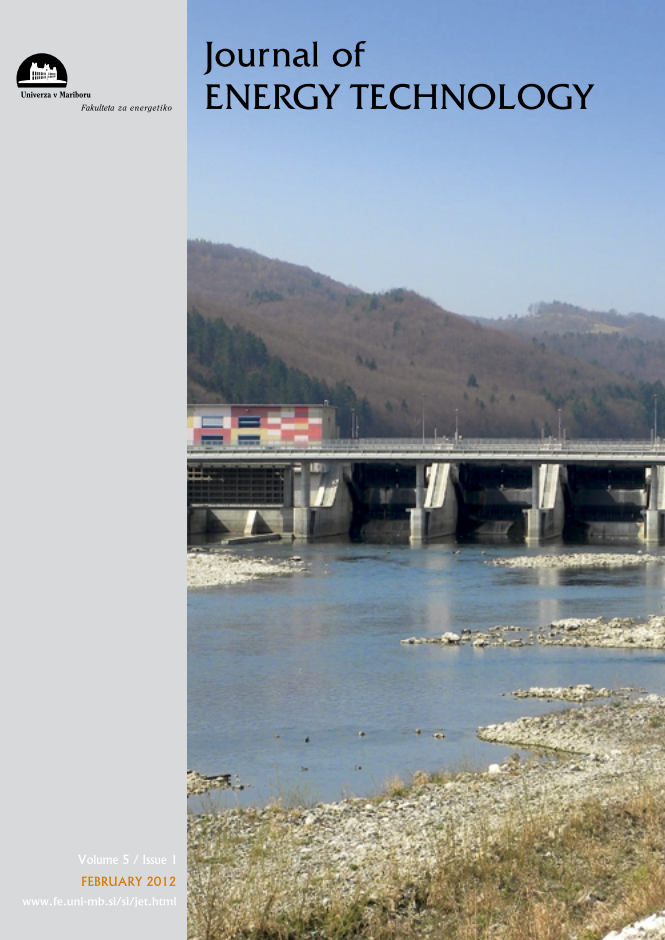TRAJNOSTNA RABA ENERGIJE V HOTELIH
Povzetek
Cilj naše študije je bil raziskati vlogo poslanstva skupine hotelov ali hotela pri razvoju trajnostnega turizma. V študiji je sodelovalo 47 zaposlenih v trinajstih hotelih v Posavju. Anketiranci so izrazili svoja stališča do trajnostne rabe energije v hotelu, kjer so zaposleni. Rezultati študije kažejo, da so faktorji dolgoročna vizija, dolgoročno usmerjena strategija, iskanje soglasja pri trajnostni rabi energije in vključenost zaposlenih v proces sprememb ključni pri razvoju »zelene« kulture. Naša študija odpira nove perspektive raziskovanja vedenjskih vzorcev v organizacijah na področju turizma, ki so usmerjeni k razvoj »zelenih« struktur, ki delujejo po načelih »zelene kulture«. Zelena kultura temelji na vedenju, ki nadzira energijsko strategijo, inovativno upravljanje z odpadki, varovanje pred požarom in pred nesrečami. Poleg tega zelena kultura temelji na uporabi nove tehnologije za varčevanje z energijo in na združevanju infrastrukturnih sistemov v turizmu.
Prenosi
Literatura
Denison, D. R.; Mishra, A. K.: Toward a Theory of Organizational Culture and Effectiveness. Organization Science, 1995, Vol.6 No 2, pp. 204–222.
Che Jamil, M. F., Yusof, N., Said, I., Osman, Z.: Organizational Culture and performance of Resort Operators of a Lake-Based Tourism Area in Malaysia. World Applied Sciences Journal, 2010, Vol. 10, No. 5: pp. 597–606.
Ambrož, M., Praprotnik, M.: Organisational effectiveness and customer satisfaction. Organizacija (Kranj), 2008, Vol. 41, No. 5, pp. 161–173.
Gillespie, M. A., Denison, D. R., Haaland, S., Smerek, R., Neale, W. S.: Linking organizational culture and customer satisfaction: Results from tow companies in different industries. European Journal of Work and Organizational Psychology, 2008, Vol 17, No 1, pp. 4–22.
Dhewato, W., Vitale, M., Sohal, A.: The effect of organizational culture on technology commercialisation performance: conceptual framework, 2009, AGSE.
Denison, D. R.: Bringing corporate culture to the bottom line, 1984, Organizational dynamics, Vol. 13, No 2, pp- 5–21
Denison, D. R.: Corporate culture and organizational effectiveness, 1990, New York, Wiley.
Kelly, J.; Williams, P. W.: Modelling Tourism Destination Energy Consumption and Greenhouse Gas Emissions: Whistler, British Columbia, Canada, 2007, Journal of sustainable tourism, Vol. 15, No. 1.pp. 67–90.
Bohdanowicz, P., Churie-Kallauge, A., Martinac, I.: Energy-Efficiency and Conservation in Hotels – Towards Sustainable Tourism. 4 th international Symposium on Asia Pacific Architecture, Hawai’i, April 2001
Ayuso, S.: Adoption of voluntary environmental tools for sustainable tourism: analysing the experience of Spanish hotels. 2006, Corporate Social Responsibility and Environmental Management, Vol. 13, No.4, pp. 207–220.
Becken, S. and Simmons, D. G.: Understanding energy consumption patterns of tourist attractions and activities in New Zealand, 2002, Tourism Management, Vol. 23, No.4, pp. 343–354.
Becken, S., Simmons, D. G., et al.: Energy use associated with different travel choices. Tourism Management, 2003, Vol. 24, No. 3, pp. 267–277.
Becalli, M., La Gennusa, M. et al.: An empirical approach for ranking environmental and energy saving measures in the hotel sector, 2009, Renewable Energy Vol. 34, No. 1, pp. 82–90.
Budeanu, A.: Sustainable tourist behaviour – a discussion of opportunities for change, International Journal of Consumer Studies, 2007, Vol. 3, No.5, pp. 499–508.
Chan, W. W. and Lam, J. C.: Prediction of pollutant emission through electricity consumption by the hotel industry in Hong Kong, 2002, International Journal of Hospitality Management, Vol. 21, No. 4, pp. 381–391.
Dalton, G. J., Lockington, D. A., et al. (2008). Feasibility analysis of stand-alone renewable energy supply options for a large hotel, Renewable Energy, 2008, Vol. 33, No. 7, pp. 1475–1490.
Cole, M.: Cultural Psychology. Cambridge, MA: Harvard University Press, 1996.
Schein, E.: Organizational culture and leadership. San Francisco: Jossey-Bass., 1985.
Erdogan, N. and E. Baris, E.: Environmental protection programs and conservation practices of hotels in Ankara, Turkey. Tourism Management, 2007, Vol. 28, No.2, pp. 604–614.
Hirschl, B., W. K., et al.: New concepts in product use for sustainable consumption, 2003, Journal of Cleaner Production, Vol. 11, No. 8, pp. 873–881.
Karagiorgas, M. T. T., et al.: HOTRES: renewable energies in the hotels. An extensive technical tool for the hotel industry, 2006, Renewable and Sustainable Energy Reviews 10(3): 198–224.
Karagiorgas, M., Tsoutsos, T. et al.: A simulation of the energy consumption monitoring in Mediterranean hotels: Application in Greece, 2007, Energy and Buildings, Vol. 39, No. 7, pp. 416–426.
Trung, D. N., and S. Kumar: Resource and waste management in Vietnam hotel industry, 2005, Journal of Cleaner production , Vol. 13, No., pp. 109-116.
Bohdanowicz, P. and Zientara, P.: Corporate Social Responsibility in Hospitality: Issues and Implications. A Case Study of Scandic, 2008, Scandinavian Journal of Hospitality and Tourism, Vol. 8, No. 4, pp. 271-293.
